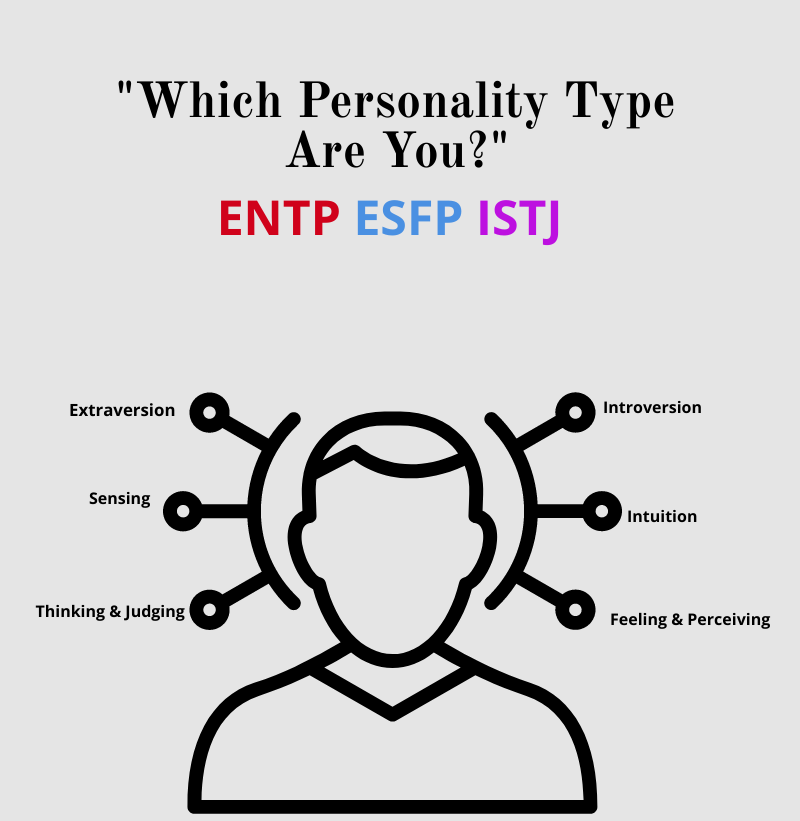DeBunking the Myers-Briggs Test
The Myers-Briggs Type Indicator is the most famous personality test nationwide. This personality test indicator is used by 115 countries and available in 29 languages (Myers-Briggs Type Indicator® (MBTI®)). Even if someone is unfamiliar with the official name of this personality test, they have definitely heard of the four letter personality types that are assigned to individuals when taking this assessment. It is no doubt that people take a great interest in this topic, it tells us all about ourselves; who doesn’t love that? While Myer-Briggs provides entertainment worldwide, how credible is it?
The basic concept of this personality assessment is 93-questions that takes about 20 minutes on average. At the end of these 20 minutes, the individual is assigned a four letter combination that is directly intended to describe you as a person. For example, someone is given the letters “ENTJ”, but what does this mean? These four letters stand for extrovert, intuition, thinking, and judging. There are two ends of the spectrum, and on the other end is introvert, sensing, feeling, and perceiving. The questions one answers are correlated with these preference pairs, and you are given a percent of how high you score on each preference.
“The MBTI was born of ideas proposed before psychology was an empirical science; those ideas were not tested before the tool became a commercial product. But modern psychologists demand that a personality test pass certain criteria to be trusted” (How Accurate Is the Myers-Briggs Personality Test? | Live Science).
The Myers-Briggs test sure does provide a lot of entertainment, but it was invented before this psychological information was truly credible. These ideals and categories were not presented with viable evidence and people view these preferences to be very “black and white” and not be an accurate representation of personality overall. The categories limit human complexity down to terms as simple as introvert and extrovert, we cannot just fall into one category.
“according to David Pincus, a professor of psychology at Chapman University in California. Psychologists prefer other tools, namely the Big Five, which assesses personality based on where an individual lies on the spectrums of five traits: agreeableness; conscientiousness; extraversion; openness to experience; and neuroticism. The Big Five model has a better record of scientific validation than the MBTI, experts say” (How Accurate Is the Myers-Briggs Personality Test? | Live Science).
Opinions pop up across the world arguing whether this test truly has credible evidence or not, but the bottom line is that the Myers-Briggs Personalityersonality indicator does not have any solid evidence behind it. The Test was created by a mother-daughter team with no professional background in psychological studies.
“Developed by a mother-daughter team with no psychological training, the Myers-Briggs test is supposed to indicate how people perceive and process the world around them” (Personality Puzzler: Is There Any Science Behind Myers-Briggs? – Knowledge at Wharton).
The Myers Brigg Test is not the most scientifically proven test, in fact it was not even made by physiologists but a mother and daughter; Katharine Cook Briggs and Isabel Briggs Myers. These two women were inspired by Swiss psychoanalyst Carl Jung. None of these women studied psychology in college, but took quite the interest in it. It can be assumed that Briggs and Myers created this personality assessment for fun, not actual research purposes. (https://www.marketplace.org/2018/10/30/5-things-you-didn-t-know-about-history-myers-briggs-system/0).
Though the overall credibility of the Myers Brigg Personality indicator test is mainly based on opinion, research shows it is not the most credible measure of personality. Myers Brigg has set too many limitations on such a broad spectrum of personality, also making people feel like the test is too black and white. The Myers Brigg has no real credibility attached to its name, but still remains the most popular personality test after all these years.




